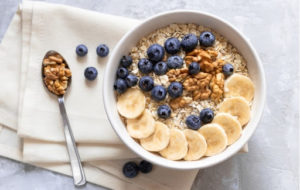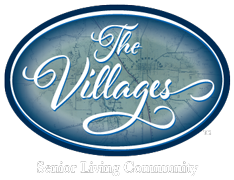Maintaining proper health and wellness is a key component to aging well. Eating healthy can improve your quality of life and keep you independent for longer.
According to the CDC, 1 in 4 older Americans suffer from poor nutrition. This can have a serious effect on how you age. If you have poor nutrition, you are at risk of:
- Becoming over or underweight
- Developing weakened muscles and bone mass which can lead to injury
- Certain diseases that can put your health at risk
- A weakened immune system
- A decreased quality of life
Sometimes, cooking and eating healthy can get a bad rep. But it doesn’t have to be difficult, time-consuming, or expensive. Keep reading to find out why nutrition is so important for your health as you age and how you can do it successfully.
Why Nutrition is Especially Important for Seniors and Longevity
Proper nutrition helps shape the way we live. A healthy diet can help you maintain a healthy weight, stay energized, and lower your risk of developing health conditions, such as heart disease and diabetes.
To meet your nutritional needs, it’s crucial to:
- Eat a diet high in fiber
- Consume a range of vitamins and minerals
- Limit foods that are high in processed or added sugars, saturated and trans fats, and salt
How is Aging Linked to Nutrition?
Aging is linked to a variety of bodily changes, including:
- Nutrient deficiencies
- Muscle loss
- Decreased levels of stomach acid
- Thinner skin
- Decreased ability to recognize hunger and thirst
Unfortunately, these bodily changes can lead to poor health outcomes and reduced quality of life. It is important to eat nutrient-rich foods and take the appropriate supplements based on your needs to combat these changes.
Speak to your doctor or health care provider today if you have any concerns about your health as you age.
Important Vitamins and Minerals as You Get Older
Although the vitamins and minerals you need depend on your health history and individual needs, there are several common nutrients you should focus on including in your diet as you age. These include:
Potassium
An increase in potassium intake can lead to a lower risk of:
- High blood pressure
- Kidney stones
- Osteoporosis
- Heart disease
Add more potassium into your diet by consuming foods such as bananas and cooked green vegetables.
Omega-3 Fatty Acids
Omega-3 fatty acids may lessen the risk factors associated with heart disease. Adding more omega-3 fatty acids into your diet may decrease your blood pressure.
By eating foods such as fish, flaxseeds, and walnuts, you can increase your omega-3 fatty acid intake.
Magnesium
Magnesium is an important mineral in the body. Magnesium regulates your blood sugar levels and can keep your heart healthy. Unfortunately, older adults are at risk of deficiency as age and medication use can affect magnesium absorption.
To ensure you have enough magnesium in your diet, eat more legumes and cereal products.
Iron
A lack of iron can lead to anemia, a condition that limits the amount of oxygen supplied to the body through your blood.
Foods high in iron include dark leafy green vegetables, beans, red meat, and poultry.

How to Create a Healthy Senior Diet
A balanced diet is essential for people of all ages. No matter your age, it is crucial you include proper ratios of carbohydrate-rich foods, protein-heavy foods, and include lots of fruits and vegetables. The following breakdown can help give you ideas on how to have an appropriate balance during each meal:
Breakfast
Breakfast is an important meal that can boost your energy and concentration throughout the day. Some ideas for breakfast include:
- Toast with avocado and an egg
- Oatmeal with fruit
- Green smoothies
Lunch
A proper lunch sets you up for the rest of your day. Some balanced lunch ideas include:
- Whole wheat sandwich with a lean protein
- Salad with a protein such as a hard-boiled egg or grilled chicken
- Homemade vegetable soups
Dinner
Having a healthy dinner is linked to good sleep, lower inflammation, and better nighttime digestion. Some meals you can try at dinner time include:
- Rice stir fry with vegetables and chicken or shrimp
- Homemade chili with whole wheat buns
- Baked fish with vegetables and rice
Snacks
Healthy snacks throughout the day can help promote healthy nutrient levels and can stop you from overeating later on. Some snack ideas to help you with this include:
- Nuts and seeds
- Fresh veggies and hummus
- Greek yogurt with fresh berries
Foods to Avoid
Now that you know what nutrients you should prioritize in your diet, you may be wondering if there are any foods you should avoid. Foods that you may benefit from limiting as you get older include:
- Raw or undercooked eggs, meat & poultry
- High-sodium foods
- Caffeine
- Products with added sugar
Eating Well on a Budget
Eating healthy doesn’t have to break the bank. Here are some tips for eating well on a budget:
- Turn leftover food into new meals
- Check for grocery store deals
- Try sources of protein other than meat
- Store food properly
- Stock up on frozen foods
Get More Help
The following resources can provide additional information on nutrition, meal planning, and healthy recipes:
- MyPlate
- The Harvard School of Public Health: The Nutrition Source
- Livestrong: Eat Better
- Dietary Guidelines For Americans
Your community may also have different options and services available to you. Contact us today to talk about our amenities and what they can do for you!




